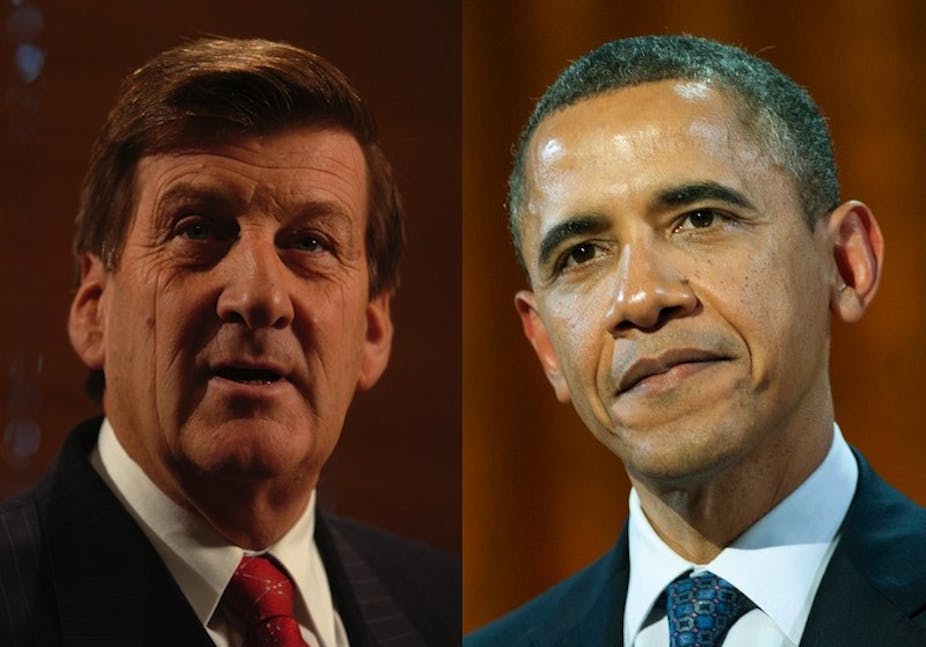Clearly, there is something in the international waters, when, within the space of a few months, both the leader of the free world, Barack Obama, and the Chairperson of beyondblue, Jeff Kennett, declare their support of same-sex marriage.
Obama, prior to his road to Damascus moment, had argued that marriage was a prisoner to its own traditions and history, and that the knot that bound woman to man could not easily be undone. Kennett, before his own epiphany, argued that every child deserves the love of a mother and a father, and that same-sex parenting constituted a challenge to the natural order of things.
That both men have reconsidered their positions is testimony to the tide of public opinion which, in the West at least, has turned in support of same-sex marriage and equal love.
One couches this turning in terms of civil rights and equality (Obama), the other in terms of how subtle forms of discrimination affect the mental health of minority and marginal populations (Kennett). However, these differences belie what is common to both: a belief in the way the lack of public, symbolic recognition of same-sex unions continues to devalue same-sex love. With that go not only same-sex couples, but also individual gay men, lesbians, bisexuals and transgender (GLBT) people.
For many GLBT people, marriage equality has come to represent the last frontier in their battle for full legal and social recognition.
It is difficult not to acknowledge the positive impact that such recognition will have on GLBT people as they gain access to, and enter, one of the last legally sanctioned bastions of heterosexual (if not heterosexist) privilege.
But for some in the GLBT community, there is a sense of cooption, of having given up on what is different about same-sex relationships. For them, marriage is an heterosexist institution, an institution that drives inequalities in not only sexuality but also gender.
Obama cites his ending of the “Don’t Ask, Don’t Tell” policy in the military as his penultimate pit stop on the road to queer redemption. But there are those in the GLBT community who would see this, like same sex marriage, as another instance of cooption, where a critique and resistance to war is being sacrificed by GLBT people in their drive for acceptance by, if not normalisation in, the mainstream.
Perhaps what is most important is not simply or only the legalisation of same sex marriage. Perhaps what is most important is the wider effect of two influential, heterosexual, male public figures recanting their past sins, and coming out in support of GLBT people.
For surely the marriage debate is as much about the continued struggle to overcome heterosexist discrimination and abuse in all its forms as it is about marriage.
Such an overcoming depends on more and more Obamas and Kennetts reconsidering and changing their opinions, giving up their heterosexist conceits and embracing sexual diversity within and outside our public institutions and time-honoured rituals.
And finally, for me at least, I do not believe the law should prevent GLBT people from making the same mistakes as heterosexuals.

